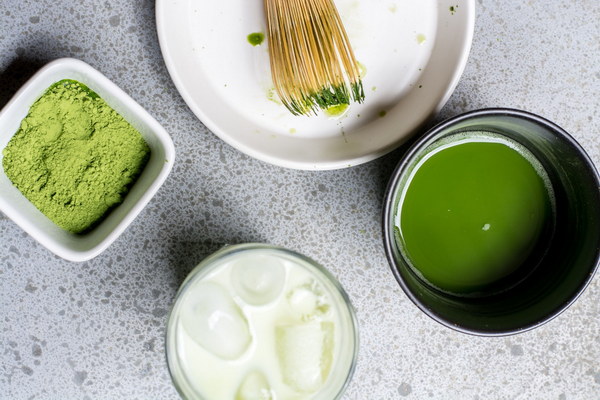The Ultimate Guide to Cultivating a Healthy Lifestyle for Lifelong Wellness
In today's fast-paced world, maintaining a healthy lifestyle has become more crucial than ever. From diet and exercise to mental well-being, there are numerous aspects to consider when aiming for lifelong wellness. This comprehensive guide will delve into the essential elements of how to cultivate a healthy lifestyle, ensuring that you can lead a fulfilling and energetic life.
1. Balanced Diet: The Foundation of Health
A balanced diet is the cornerstone of good health. To maintain optimal nutrition, it's important to consume a variety of foods from all food groups:
- Fruits and Vegetables: Aim for at least five servings a day to ensure a rich intake of vitamins, minerals, and antioxidants.
- Whole Grains: Replace refined grains with whole grains to increase fiber intake and reduce the risk of chronic diseases.
- Lean Proteins: Choose lean sources of protein such as poultry, fish, beans, and tofu to support muscle growth and repair.
- Healthy Fats: Incorporate healthy fats from avocados, nuts, and olive oil to support heart health and brain function.
- Limited Processed Foods: Reduce the intake of processed foods, which are often high in unhealthy fats, sugars, and sodium.
2. Regular Physical Activity: The Key to Longevity

Physical activity is essential for maintaining a healthy weight, improving cardiovascular health, and boosting mental well-being. Here are some tips to integrate regular exercise into your routine:
- Aerobic Exercise: Engage in at least 150 minutes of moderate aerobic activity or 75 minutes of vigorous aerobic activity each week.
- Strength Training: Incorporate strength training exercises two or more days a week to maintain muscle mass and bone density.
- Flexibility and Balance: Practice yoga or stretching to improve flexibility and balance, reducing the risk of injury.
- Find What You Enjoy: Whether it's walking, swimming, cycling, or dancing, find an activity that you enjoy to make exercise a sustainable habit.
3. Adequate Sleep: The Body's Natural Healing Process
Sleep is a critical component of a healthy lifestyle. Aim for 7-9 hours of quality sleep each night to support:
- Physical Health: Sleep helps regulate metabolism, immune function, and growth hormone production.
- Mental Health: Adequate sleep improves cognitive function, mood regulation, and stress management.
- Longevity: Chronic sleep deprivation has been linked to a higher risk of chronic diseases, such as diabetes, heart disease, and obesity.
4. Stress Management: The Path to Inner Peace
Stress can take a toll on both your physical and mental health. Here are some strategies to manage stress:
- Mindfulness and Meditation: Practice mindfulness and meditation to stay grounded and reduce anxiety.
- Social Support: Maintain strong relationships and seek support from friends and family during challenging times.
- Hobbies and Interests: Engage in hobbies and activities that bring you joy and a sense of accomplishment.
- Professional Help: If stress becomes overwhelming, consider seeking help from a mental health professional.
5. Hydration and Hygiene: The Basics of Wellness
Proper hydration and hygiene are often overlooked but are crucial for maintaining good health:
- Hydration: Drink plenty of water throughout the day to support digestion, absorption of nutrients, and elimination of waste products.
- Hygiene: Practice good personal hygiene to reduce the risk of infections and maintain overall health.
6. Regular Health Check-ups: Catching Issues Early
Regular health check-ups with your doctor can help identify potential health issues early and allow for timely intervention. This includes:
- Blood Tests: Screen for conditions like diabetes, cholesterol levels, and blood pressure.
- Immunizations: Stay up to date with vaccinations to protect against infectious diseases.
- Cancer Screenings: Follow recommended screening guidelines for cancer detection and prevention.
By incorporating these essential elements into your daily life, you can cultivate a healthy lifestyle that promotes lifelong wellness. Remember, the journey to good health is a marathon, not a sprint, and small, consistent changes can lead to significant improvements in your overall well-being.



![Discover the Serenity of Double Happiness Beauty & Skincare at Our Prime Location in [City, Country]](http://img.bluepurple.cn/a/养生/70/Discover-the-Serenity-of-Double-Happiness-Beauty-Skincare-at-Our-Prime-Location-in-City-Country.jpg)





